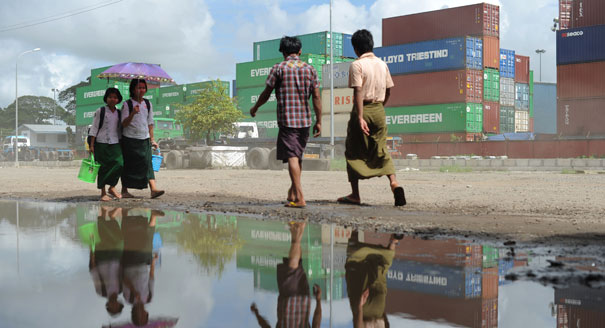Source: Global Partnership for Social Accountability
The rapid rise of initiatives and assistance aimed at fostering greater governmental accountability during the past ten years is not just another special interest or silver bullet enjoying a temporary run on the development stage. It is a potentially fundamental advance in development work, one that reflects several profound drivers of change. These include the significant expansion of political space in countries as a result of the historic trend toward democracy in the last 30 years, the enormous increase in citizens’ access to information and new forms of association and mobilization as a result of the communications and information revolution, and the widespread frustration over corruption that is such a common feature of political and economic life in many countries.
Accountability work has moved relatively quickly from a first generation of assumptions and approaches to an emerging second generation that reflects various advances in conception and execution. Some principal elements of this evolution include:
- Excitement about transparency as a shortcut for achieving accountability giving way to the recognition that transparency on its own is only a very small part of the needs that allow citizens to put to use information gained.
- Initial fascination with technological tools, such as new digital platforms to create specific interactive relationships between citizens and states, giving way to the recognition that even at its best, technology is always a means, not an end, and that there are no easy solutions for overcoming entrenched, predatory, and corrupted power structures.
- An initial tendency to underestimate the particularities and variabilities of specific national contexts as determinants of progress on accountability being replaced by growing recognition of the need to do much deeper contextual analysis and adaptation.
- Moving from relatively small-scale efforts that seek piecemeal gains to a search for ways to scale up accountability, both vertically and horizontally within societies.
- Moving from an initial focus on tactical to strategic engagements that look for a wider scope of change and more types of leverage.
- Recognizing the need to build linkages among diverse actors supporting accountability, both within and across countries.
- Capturing the learning from experience that is being generated by accountability programming by solidifying learning platforms.
To some extent, these changes sound natural or self-evident, but the shift from first-generation to second-generation accountability work is easier to frame than to execute. Putting it into practice requires revising deep-seated habits among assistance providers. Effective accountability work requires a deep, subtle understanding of the political economy of governance structures. It must proceed from flexible methods of operation that aim to help facilitate complex processes of change with multiple actors. It follows non-linear patterns of success and failure that constitute twisting rivers of change, not narrow well-defined and straight paths. It often requires working close to the political edge, challenging power holders and making them uncomfortable.
In other words, the shift from first-generation to second-generation accountability work is one part of the larger attempted shift in development assistance from old, technocratic ways of doing business to new, more politically adaptive, flexible, and smart methods. This is a shift that is proceeding only unevenly across the larger landscape of aid organizations. If accountability work can successfully evolve and show the value and power of second-generation approaches, it could be a crucial spark to help advance this much-needed larger evolution of development assistance overall.







